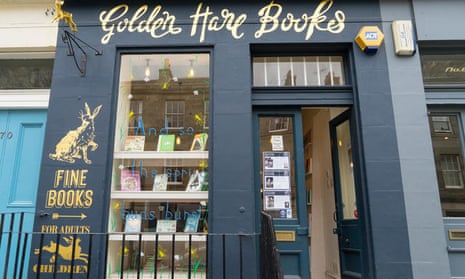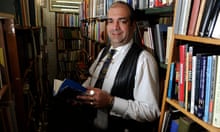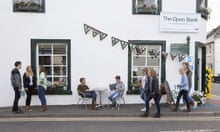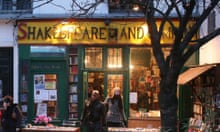
As global temperatures rise at the rate political standards fall, the news that independent bookshops are reviving gives rare cause for celebration. Last year the number of indies on UK high streets grew for the second year running – by 15 to 883, according to the Booksellers Association. As a reader, writer and literary salon host, I’m delighted. As a person genuinely worried that Donald Trump believes The Handmaid’s Tale is a how-to book, I’m relieved.
This resurgence is partly thanks to Independent Bookshop Week, which started on Saturday and runs to 22 June. Across Britain and Ireland indies are doing what they do best: hosting readings and signings, cooking up literary lunches and generally feeding curiosity. Bookshop crawls are quite the thing now and you can join one locally or engage in literary tourism farther afield. Check the hashtag or just join a convoy of people with Books are my Bag totes – I refuse to wash the Tracey Emin special edition.
Reading is solitary and social – for over 10 years I’ve hosted literary salons inspired by Madame de Pompadour and the 18th-century salonnières. Now based at the Savoy, my salon is simple – a mix of established and emerging writers read new work, then we talk about it and them too. Nowadays, readers want to meet writers (whether writers like it or not). I’m lucky enough to love it and have toured over 50 indies since my novel You Will Be Safe Here came out in April.
Much Ado Books in Alfriston very kindly put me up in their barn while I finished the last draft. At Lighthouse Books in Edinburgh I played fetch with Artemis, the bookshop dog, while perusing their radial shelves – a bookshop pet really helps trade, the cuter the better. I read at Shakespeare & Company in Paris the evening after Notre Dame burned and saw how powerfully stories give a community a reason to connect – it was packed with Parisians glad to have the chance to sit and listen and reflect.
Every month, my salon celebrates a different indie. Past favourites include Booka in Oswestry, The Edge of the World in Penzance and Golden Hare in Edinburgh – winner of this year’s Independent Bookshop of the Year at the British Book Awards. As it is Pride Month we’re showcasing Category Is Books in Glasgow. One of the newest to open its doors, it is owned and run by wife-and-wife team Charlotte and Fionn Duffy-Scott: “We’re a specialist queer bookshop – we only stock books that have LGBTQIA+ characters, narratives, or were created by somebody in the community. We don’t stock anything that we feel is homophobic, transphobic, biphobic, misogynistic, terf-y, racist or fascist.”
No Ayn Rand or Ann Widdecombe there and quite right too. After all, you wouldn’t walk into travel bookshop Stanfords and ask for a cookbook.
To reduce bookshops to selling is to mistake writing for typing or reading as a workout for your eyes. The best indies don’t stock everything – every book must fight a sort of intellectual Hunger Games to win a space on the shelves. As for getting a place in the window – for that your book must enter the very soul of the bookseller (or sell 1,000 copies a day à la Pinch Of Nom). Space is at a premium but every indie can order you anything and get it for the next day.
If you get to know them, they get to know you and your tastes far better than any algorithm can. Indies that don’t just survive but thrive do so because they celebrate and anchor a community – Gay’s the Word, Crediton Community Bookshop, The Second Shelf. Round Table Books has just opened a permanent shop in Brixton, south London. An “inclusive” store, dedicated to children,, it started as a pop-up in response to a study which revealed that only 1% of children’s books published in the UK contain a BAME main character.
Round Table, Category Is and all the other indies pay property costs and local rates that Amazon doesn’t face – to say nothing of taxes. In 1995, the UK boasted 1,894 indies – more than twice what we have now. Indies are recovering, just like fish stocks, but they remain fragile and need government help just as much as they deserve our love.
Every week is indie bookshop week in my house – I’m like one of those people who keeps their Christmas tree up all year. Books pile up on every surface, the half-finished lost among the much-loved, bath-swollen paperbacks compressed between hefty hardbacks. Layer upon layer of stories which will eventually form a pearl. A very dusty beautiful pearl.




